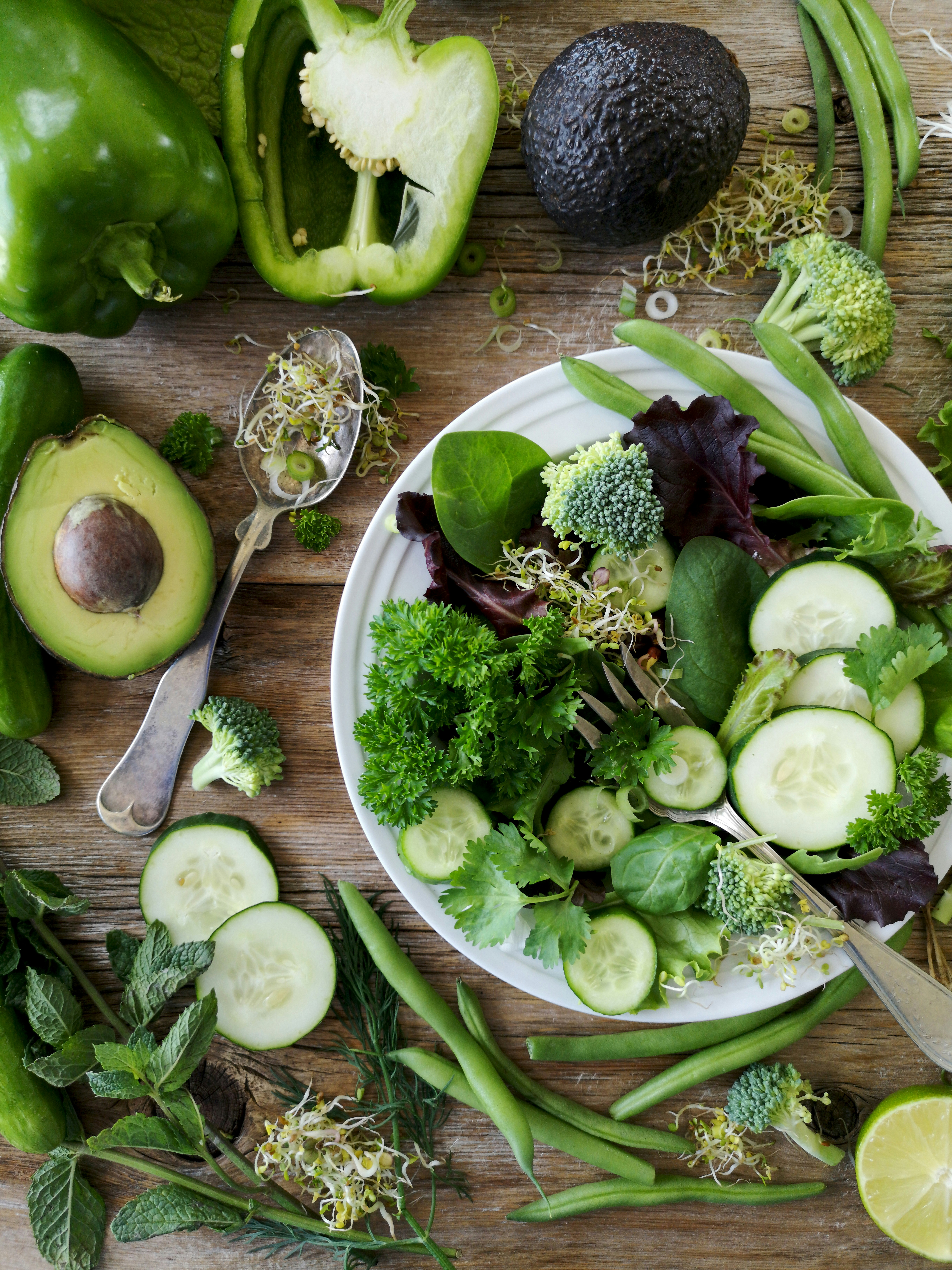If you’ve been considering the keto diet as a means to achieve your fitness goals, you might be wondering: does the length of time on the keto diet affect muscle growth? It’s a question that many individuals on the keto diet have pondered, as they strive to find the perfect balance between fat loss and muscle gains. In this article, we will explore the potential impact of the duration of the keto diet on muscle growth, providing you with the insights you need to make informed decisions about your fitness journey. Whether you’re a beginner or a seasoned keto dieter, understanding the relationship between the length of time on the keto diet and muscle growth is crucial in optimizing your results.
Understanding the Keto Diet
Definition of Keto diet
The Keto diet, short for ketogenic diet, is a low-carbohydrate and high-fat diet that has gained popularity in recent years. It involves reducing your intake of carbohydrates and replacing them with fats, which forces your body into a state of ketosis. When your body enters ketosis, it begins to burn fat for energy instead of relying on carbohydrates.
Benefits of keto diet
The keto diet offers several benefits beyond weight loss, and one of them is its potential positive impact on muscle growth. By eliminating or significantly reducing carbohydrates, the keto diet prompts your body to rely on stored fats for fuel, leading to weight loss and improved body composition. Furthermore, the increased fat and protein intake may help support muscle maintenance and growth.
How keto diet works
When you follow a keto diet, you limit your carbohydrate intake to around 20-50 grams per day. This restriction causes your body to deplete its stored glucose (carbohydrate) reserves, forcing it to enter a state of ketosis. In ketosis, your liver begins to produce ketones, which serve as an alternative source of energy for your brain and body. By decreasing carbohydrates and increasing fat intake, your body becomes more efficient at burning fat for energy.
Drawbacks of keto diet
While the keto diet has many benefits, there are also potential drawbacks to consider. Adapting to the diet can be challenging, as your body needs time to adjust to using fats as its primary fuel source instead of carbohydrates. This transition period, known as the keto flu, may cause symptoms such as fatigue, brain fog, and irritability. Additionally, the diet’s restrictive nature can make it difficult to adhere to in the long term, and it may be less suitable for certain individuals, such as athletes or those with specific health conditions.
The Correlation Between Diet and Muscle Growth
How diet influences muscle growth
Diet plays a crucial role in muscle growth as it provides the necessary nutrients for repair and growth of muscle tissue after intense exercise. Consuming an adequate amount of calories, protein, and other vital nutrients helps support muscle protein synthesis, the process by which your body builds new muscle proteins.
The significance of protein in muscle growth
Protein is particularly important for muscle growth as it supplies the amino acids needed for repairing and building muscle tissue. When you exercise, especially through resistance training, you create micro-tears in your muscles. Protein consumption helps to repair these tears and build stronger and larger muscles. It is recommended to consume around 0.6 to 1 gram of protein per pound of body weight daily for optimal muscle growth.
The role of calories in muscle growth
Caloric intake is essential for both muscle growth and providing the energy required for exercise and recovery. To build muscle, you need to consume more calories than your body burns, creating a surplus that supports muscle growth. However, it’s important to strike the right balance and avoid excessive calorie intake, as excess calories can lead to unwanted weight gain.

The Role of Carbohydrates in Muscle Growth
Importance of carbs for muscles
Carbohydrates serve as the primary energy source for our bodies, including our muscles. During intense exercise, carbohydrates in the form of glycogen provide the energy necessary to fuel muscle contractions. Consuming an adequate amount of carbohydrates ensures that your muscles have the glycogen stores needed for optimal performance during workouts.
Effects of low-carb diet on muscle mass
While low-carb diets, such as the keto diet, have gained popularity for weight loss, they may affect muscle growth differently. Severely restricting carbohydrates can limit glycogen stores in the muscles, potentially impacting exercise performance. Without enough glycogen, it may be more challenging to sustain high-intensity workouts or resistance training sessions, which are crucial for stimulating muscle growth. Therefore, it’s important to consider the potential impact of low-carb diets on overall muscle mass.
Keto Diet and Muscle Growth: Initial Stage
Changes in the body after starting the keto diet
When you first start the keto diet, your body undergoes a significant metabolic shift. As your carbohydrate intake decreases, your body begins to burn stored fats for fuel instead. This can lead to weight loss, particularly in the form of water weight as your body depletes its glycogen stores.
Effects of keto flu on muscle strength
During the initial stage of the keto diet, some individuals may experience what is known as the keto flu. Symptoms may include fatigue, weakness, and reduced exercise performance. These temporary effects can impact muscle strength during this adaptation period.
Short-term impacts on muscle development
In the short term, muscle development on the keto diet may be affected by the limited availability of carbohydrates, which can impact performance during resistance training. However, as the body adapts to utilizing fats as a primary fuel source, muscle development may stabilize and even improve over time.

Keto Diet and Muscle Growth: Intermediate Stage
Adaptation of the body to ketosis
As you continue with the keto diet, your body becomes increasingly efficient at using fats for energy. It adapts to the state of ketosis, and this metabolic shift can support sustained energy levels during workouts.
Effects on muscle growth after initial period
In the intermediate stage of the keto diet, muscle growth can be supported with adequate protein consumption, along with consistent resistance training. The increased fat intake provides a source of energy, while protein intake supports muscle repair and growth.
Factors influencing muscle growth during this stage
Several factors can influence muscle growth during the intermediate stage of the keto diet. These include individual genetics, overall calorie intake, protein quality and quantity, the intensity and type of exercise performed, and the consistency of the diet and exercise routine.
Keto Diet and Muscle Growth: Long Term Stage
Long-term effects of keto diet on muscle growth
In the long term, the keto diet can have variable effects on muscle growth. Some individuals may experience consistent muscle growth, while others may find their gains slower or limited. The interaction between the keto diet and muscle growth can be influenced by factors such as individual metabolism, exercise regimen, and overall nutrient intake.
Change in muscle growth rate over time
As your body adapts to the keto diet over the long term, the initial fluctuations in muscle growth may stabilize. Muscle growth rates may vary from person to person, and factors such as genetics, age, and overall lifestyle choices can influence the rate at which muscle growth occurs.
Possible reasons for slower or no muscle growth
While the keto diet can support muscle growth, some individuals may experience slower or no muscle growth due to various reasons. Inadequate caloric intake, insufficient protein consumption, inconsistent exercise routine, and lack of overall nutrient balance could all contribute to limited muscle growth on the keto diet.
Balancing Protein Intake While On Keto Diet
Suggested protein intake for muscle growth on a keto diet
To support muscle growth on the keto diet, it is recommended to consume an adequate amount of protein. Aim for around 0.6 to 1 gram of protein per pound of body weight per day. This helps ensure that your body receives sufficient amino acids for muscle repair and growth.
Ways to incorporate protein into a keto diet
There are various sources of protein that can be incorporated into a keto diet. Some options include lean meats, poultry, fish, eggs, dairy products, and plant-based protein sources such as tofu or tempeh. It is important to choose protein sources that are low in carbohydrates to maintain ketosis.
Issues with high protein consumption on a keto diet
While protein is essential for muscle growth, excessively high protein consumption on a keto diet can have drawbacks. Consuming too much protein can potentially lead to gluconeogenesis, a process in which excess protein is converted into glucose. This can disrupt ketosis and hinder the benefits of the keto diet. It is important to strike a balance and monitor protein intake while on a keto diet.
Comparisons of Muscle Growth on Keto Vs Other Diets
Muscle growth on keto diet vs high-carb diet
When comparing muscle growth on a keto diet and a high-carb diet, it is important to consider individual variables. Both diets have the potential to support muscle growth, but the emphasis on macronutrient composition differs. The high-carb diet relies on carbohydrates as the main fuel source, while the keto diet primarily utilizes fats. The appropriate choice depends on personal preferences, goals, and overall lifestyle.
Muscle growth on keto diet vs balanced diet
Muscle growth on the keto diet versus a balanced diet also depends on individual factors. A balanced diet, which includes a moderate intake of carbohydrates, fats, and protein, can provide a range of nutrients to support overall health and muscle growth. The keto diet, with its emphasis on low-carbohydrate and high-fat intake, may offer unique benefits for certain individuals, but it may not be the ideal choice for everyone.
Studies comparing muscle growth on different diets
Scientific studies have investigated the effects of different diets on muscle growth, including the keto diet. While some studies suggest that a high-carb diet may enhance muscle growth due to the availability of glycogen for intense exercise, other research indicates that low-carbohydrate diets, such as the keto diet, can also support muscle growth. The results of these studies can provide valuable insights but should be interpreted in the context of individual variation and overall diet adherence.
Personal Factors That May Influence Results
Role of genetics in muscle growth
Genetics play a significant role in muscle growth and overall body composition. Some individuals may have a genetic predisposition to build muscle more easily than others. While genetics cannot be changed, understanding your genetic makeup can help you tailor your exercise and dietary choices to optimize muscle growth.
Impact of age and gender on muscle growth
Age and gender can also impact muscle growth. Generally, muscle mass tends to decline with age, and hormone levels differ between men and women, affecting muscle-building potential. Nevertheless, regular resistance training and proper nutrition can help mitigate the effects of age-related muscle loss and support muscle growth across all ages and genders.
Influence of physical activity level
Physical activity level plays a significant role in muscle growth. Consistent resistance training, combined with an appropriate diet, is key to stimulating muscle protein synthesis and promoting muscle growth. Individuals who are more sedentary may experience slower muscle growth compared to those who engage in regular exercise.
Strategies For Maximizing Muscle Growth On Keto Diet
Suggestions for resistance training regime
To maximize muscle growth on the keto diet, it is crucial to incorporate a well-designed resistance training regime. Focus on compound exercises that target multiple muscle groups, such as squats, deadlifts, and bench presses. Aim to progressively overload your muscles by gradually increasing the weight or intensity of your workouts over time.
The role of dietary supplements
While the keto diet can provide most of the necessary nutrients for muscle growth, certain dietary supplements may be beneficial. Creatine monohydrate, for example, has been shown to enhance muscle strength and increase muscle mass. Additionally, omega-3 fatty acids can help reduce inflammation and support overall muscle health.
The importance of rest and recovery in muscle growth
Rest and recovery are essential for muscle growth on any diet, including the keto diet. Allow your muscles time to recover between workouts to avoid overtraining. Sufficient sleep and proper nutrition support optimal recovery, ensuring that muscles have time to repair and grow. It is important to listen to your body and prioritize rest to maximize muscle growth on the keto diet.
Understanding the correlation between the keto diet and muscle growth is essential for individuals looking to optimize their muscle-building efforts. While the keto diet can support muscle growth, it is important to consider individual factors, such as genetics, age, and exercise regimen. By balancing macronutrient intake, incorporating resistance training, and prioritizing recovery, you can maximize muscle growth on the keto diet. Remember, consistency and patience are key, and consulting with a healthcare professional or registered dietitian can provide personalized guidance on achieving your muscle growth goals while on the keto diet.


